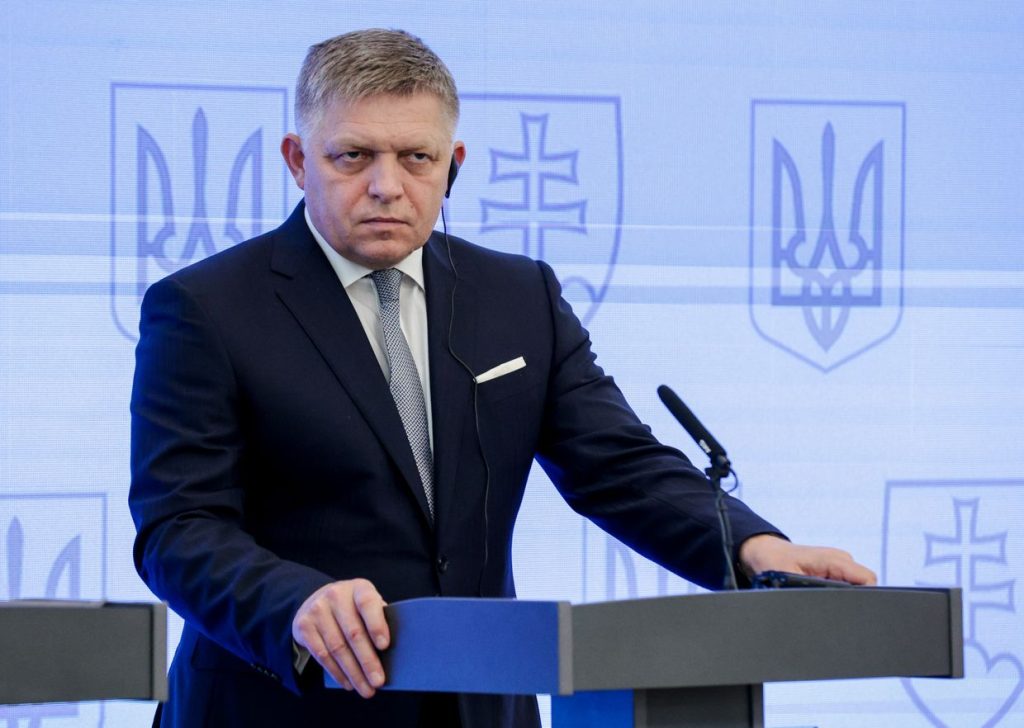Slovakia is considering reducing aid for Ukrainian refugees in response to Ukraine’s decision to terminate Russian gas transit through its territory. Prime Minister Robert Fico stated that while Slovak households will not face energy shortages, the country stands to lose €500 million annually in transit revenue. Ukraine made the decision to stop the transit of Russian natural gas on January 1, with the goal of avoiding financing Russia’s war. Fico criticized Ukraine’s stance and announced that Slovakia is prepared to negotiate and potentially cut off electricity supplies and reduce support for Ukrainian citizens in the country.
Fico’s announcement follows previous threats to cut off electricity exports to Ukraine amid escalating blackouts caused by Russian attacks on its energy infrastructure. A meeting between Slovak, Ukrainian, and European Commission representatives is scheduled to take place on January 7 in Brussels to address the shutdown. Despite efforts within the EU to decrease dependence on Russian fossil fuels, Slovakia remains reliant on Russian gas due to a long-term contract with Gazprom. Switching to alternative supply routes could cost Slovakia an additional €220 million in transit fees.
The termination of Russian gas transit through Ukraine marks a significant development that impacts both Ukraine and Europe as a whole. With Ukraine cutting off this key transit route, Russia loses leverage over Europe in terms of gas supplies. The move by Ukraine is seen as a strategic decision to avoid financially supporting Russia’s actions in Ukraine. The decision has sparked reactions from neighboring countries like Slovakia, who now face financial losses due to the termination of gas transit.
The meeting between Slovak, Ukrainian, and European Commission representatives aims to address the implications of the gas transit shutdown and find potential solutions. The discussions will likely focus on mitigating the financial impact on Slovakia and exploring alternative supply routes for gas. The situation highlights the complexities of energy dependencies and geopolitical tensions in the region. Slovakia’s consideration of retaliatory measures against Ukraine serves as a reminder of the broader implications of energy politics in Europe.
As the meeting in Brussels approaches, the negotiations between the involved parties will be crucial in determining the next steps regarding gas transit and support for Ukrainian refugees. The outcome of these discussions could have implications for energy security in the region and the relationship between Slovakia and Ukraine. The decision to terminate Russian gas transit through Ukraine has not only economic repercussions but also geopolitical consequences that will shape the future dynamics of energy relations in Europe. It remains to be seen how the situation will evolve and what measures will be taken to address the challenges posed by the gas transit shutdown.


